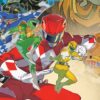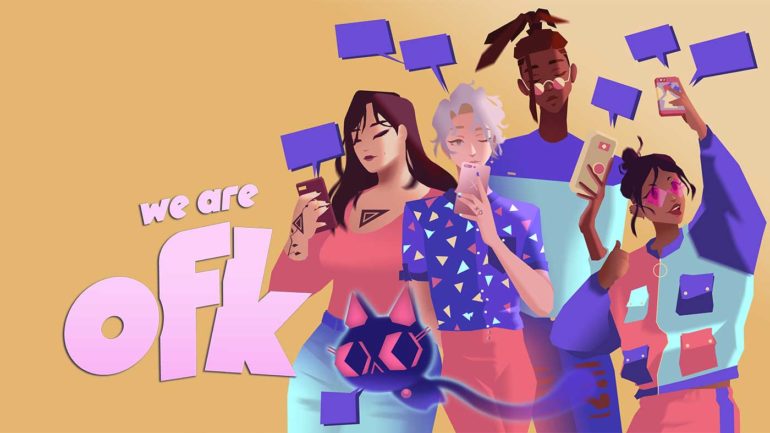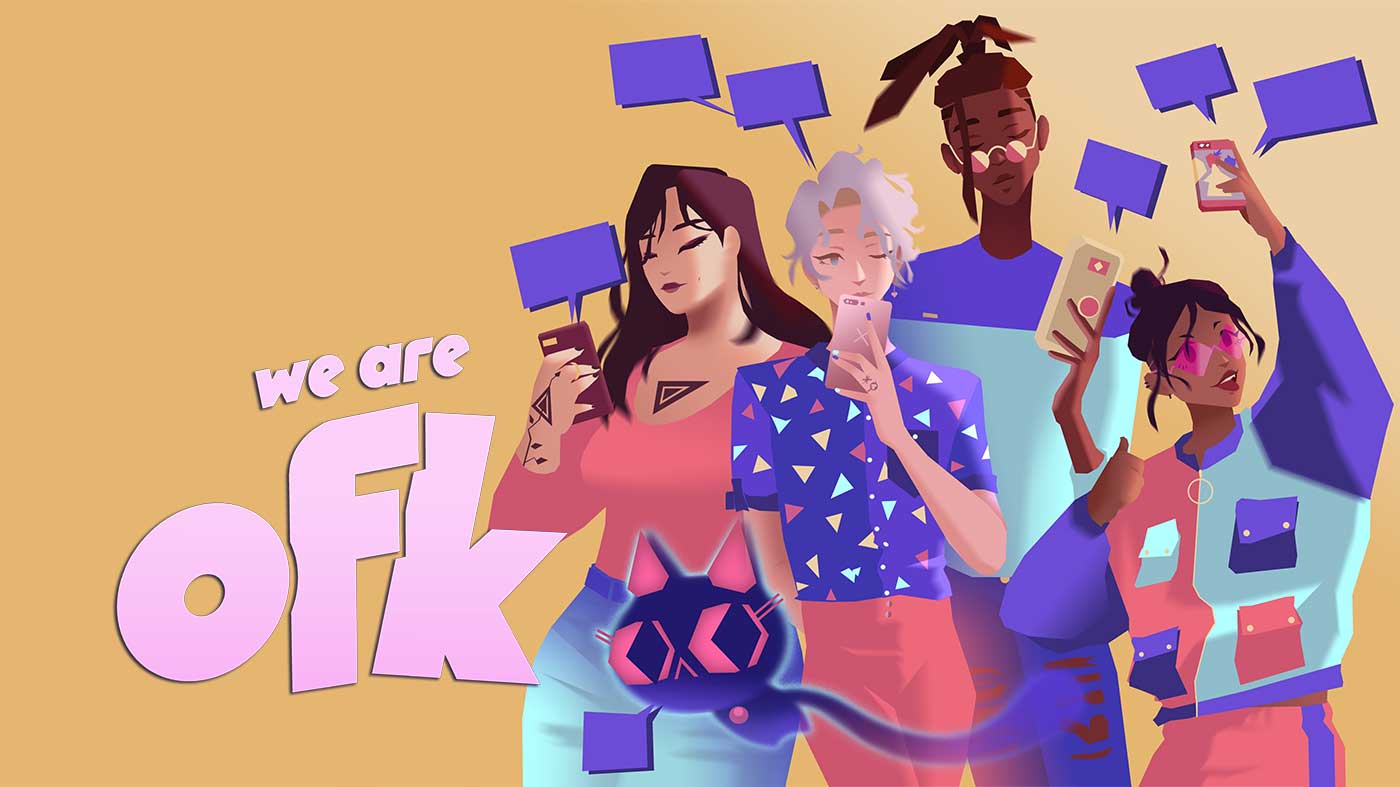How interactive does a video game need to be, to be considered a video game? That’s a loaded and probably completely unnecessary question, with an answer that probably lies somewhere between “who cares?” and “anything can be a video game” but it’s one that found itself curled up in the noodles of my brain during the entirety of We Are OFK. Helmed by Teddy Dief of Hyper Light Drifter fame, We Are OFK is an episodic narrative that shines as a cross-media, interactive animated series and pop EP but might be a touch too passive for those looking for the traditional notion of a game.
We Are OFK is a largely an origin story, one that chronicles the coming-together of four friends, old and new, amongst the cutthroat Los Angeles scene to produce the EP of their dreams. It’s essentially a music biopic that simultaneously launches the virtual musicians that it depicts, while also acting as a self-contained slice-of-life story of friendships, relationships, grief, love and trauma in a modern setting. Releasing episodically over four weeks, it’s a roughly five-hour narrative experience presented through gorgeous, stylised visuals and choice-driven dialogue.
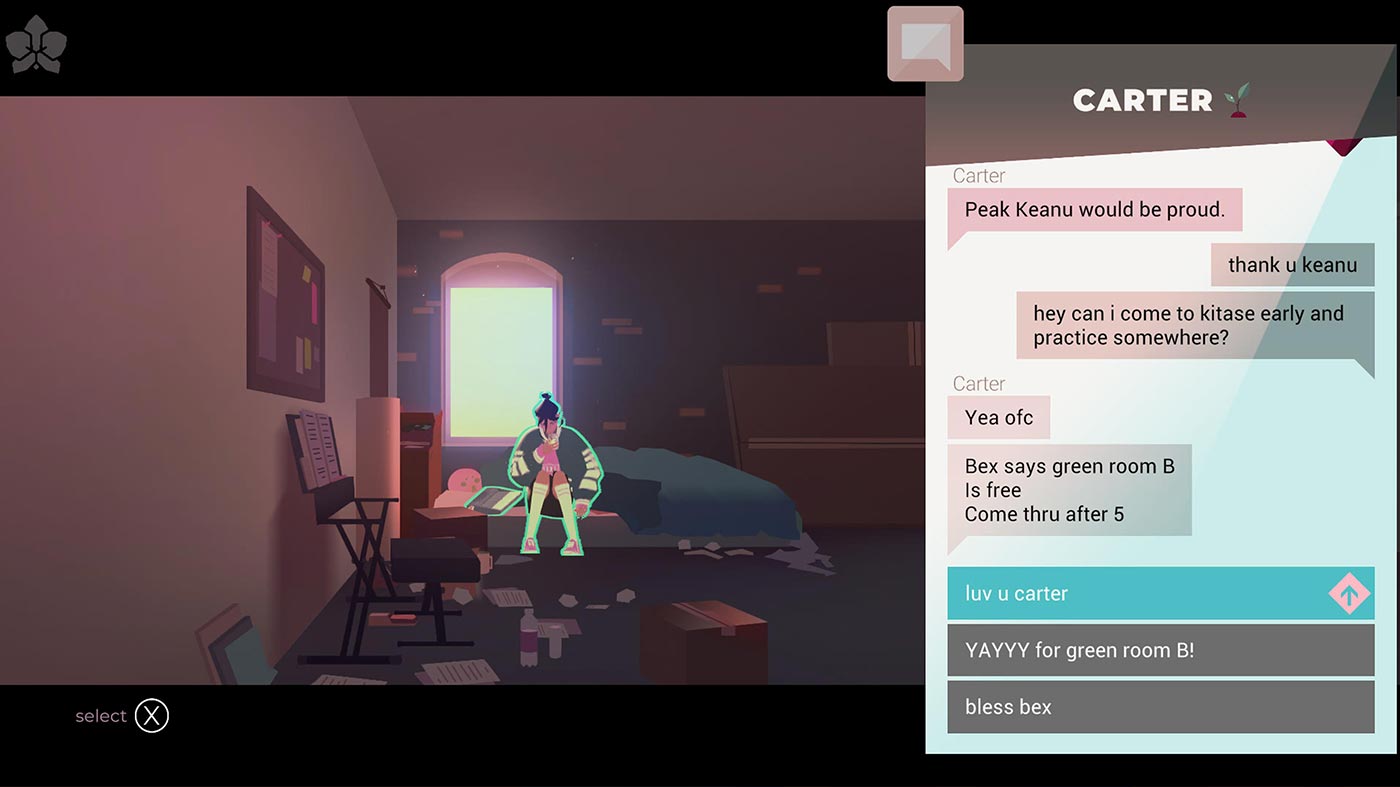
If it reads like I’m skirting around a lot of what actually happens in We Are OFK, I am. Not least because the game is releasing on an episodic schedule with only the first two episodes available this week, so there’s a lot I’d be loath to spoil. More than that though, it’s less the broad strokes of the game’s slow burn of a narrative that are noteworthy and more how it’s all put together. The core beats of OFK’s band origin story aren’t new or surprising by any stretch, but they’re presented through some incredibly snappy and natural-feeling dialogue and convincing character writing. Itsumi and co. come across perfectly as young creatives navigating their goals and relationships in LA, whether it’s in-person or through the game’s frequent text message conversations (finally, a game that accurately portrays the overwhelmingly large percentage of my interactions being in text form).
We Are OFK’s writers have also done a bang-up job of portraying the same creative industries that birthed the game itself and how they fit within the societal and cultural positions of its characters, whether it’s Itsu’s run-ins with burnout and discrimination at the Riot-esque Leviathan or Jey’s inner conflicts between her parents approval and her creative freedom. It’s also unflinchingly queer in a way that feels genuine and a product of a diverse team. After rolling the credits on the fifth and final episode I came away unsurprised with its conclusion but absolutely hungry for more of OFK themselves. All throughout I couldn’t help thinking that this could very well work as an ongoing project, a Gorillaz moment for the video game world, where musical output is buoyed by visual art and thematic context in a way that wouldn’t otherwise exist. I don’t think it’ll happen, but I’d love to see it.
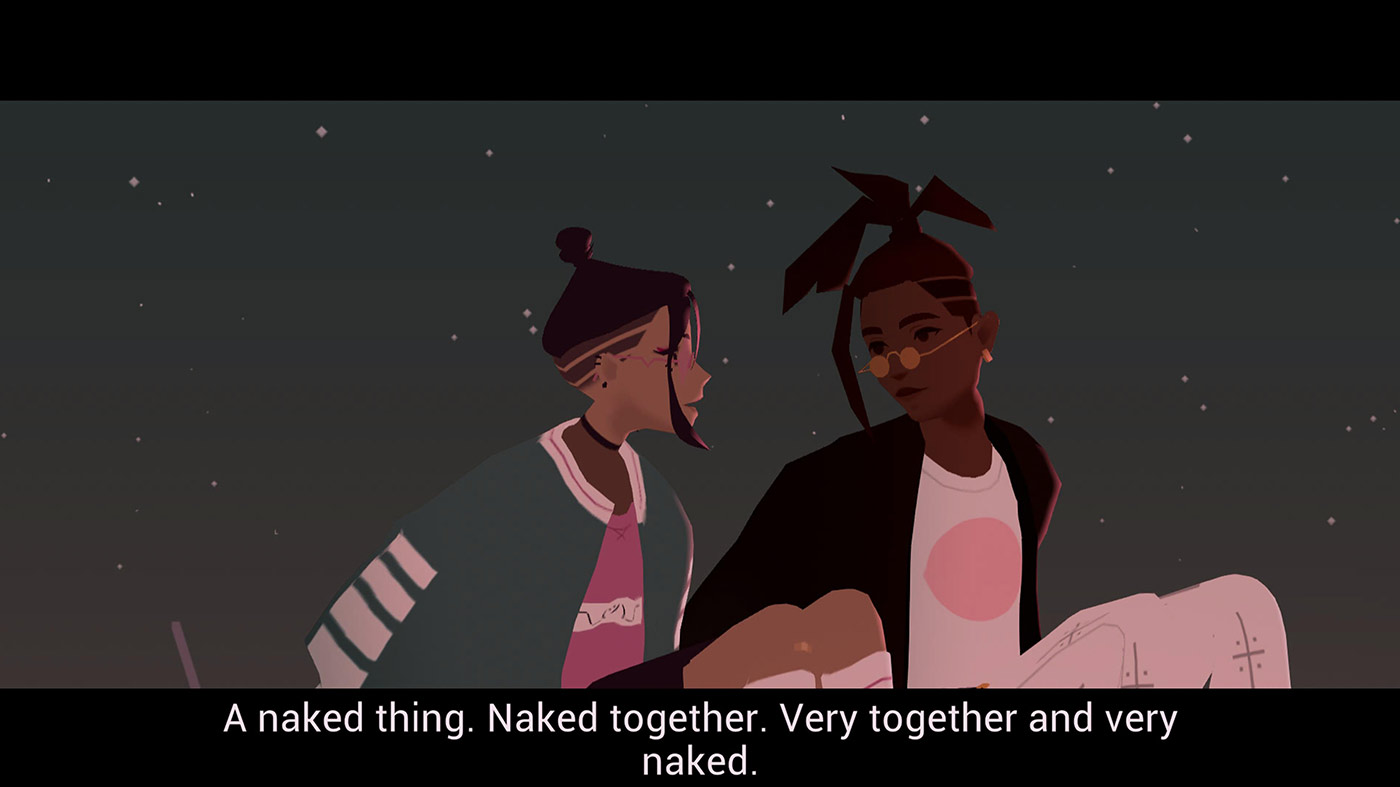
Of course, given its musical stylings it’s no surprise that the audio experience in We Are OFK is fantastic. For starters, the voice cast do a fantastic job across the board at delivering the already-well written dialogue, and LA musician omniboi kills it with the game’s broad musical score. Most importantly though, the five-track EP from the titular OFK that the game serves as a basis for absolutely slaps. Even if you’ve no desire to play or watch someone play the game itself, there’s no reason you shouldn’t jump on your favourite music streaming service and give these tracks a listen. Follow/Unfollow has been doing the rounds for a while now, but I’ve been (impatiently) waiting since finishing all five episodes for the releases of Fool’s Gold and Infuriata – those are both going straight into regular rotation.
As much as We Are OFK excels in its storytelling and presentation though, I’m not entirely convinced of how it interacts with its players. Or rather, how much interaction it gives players. The game asks that you keep your controller in hand throughout but gives you little more to do with it than occasionally press a button to advance a scene or make semi-frequent dialogue choices. The latter definitely adds to the experience thanks to the strong writing, but also rarely has any major bearing on how everything plays out.
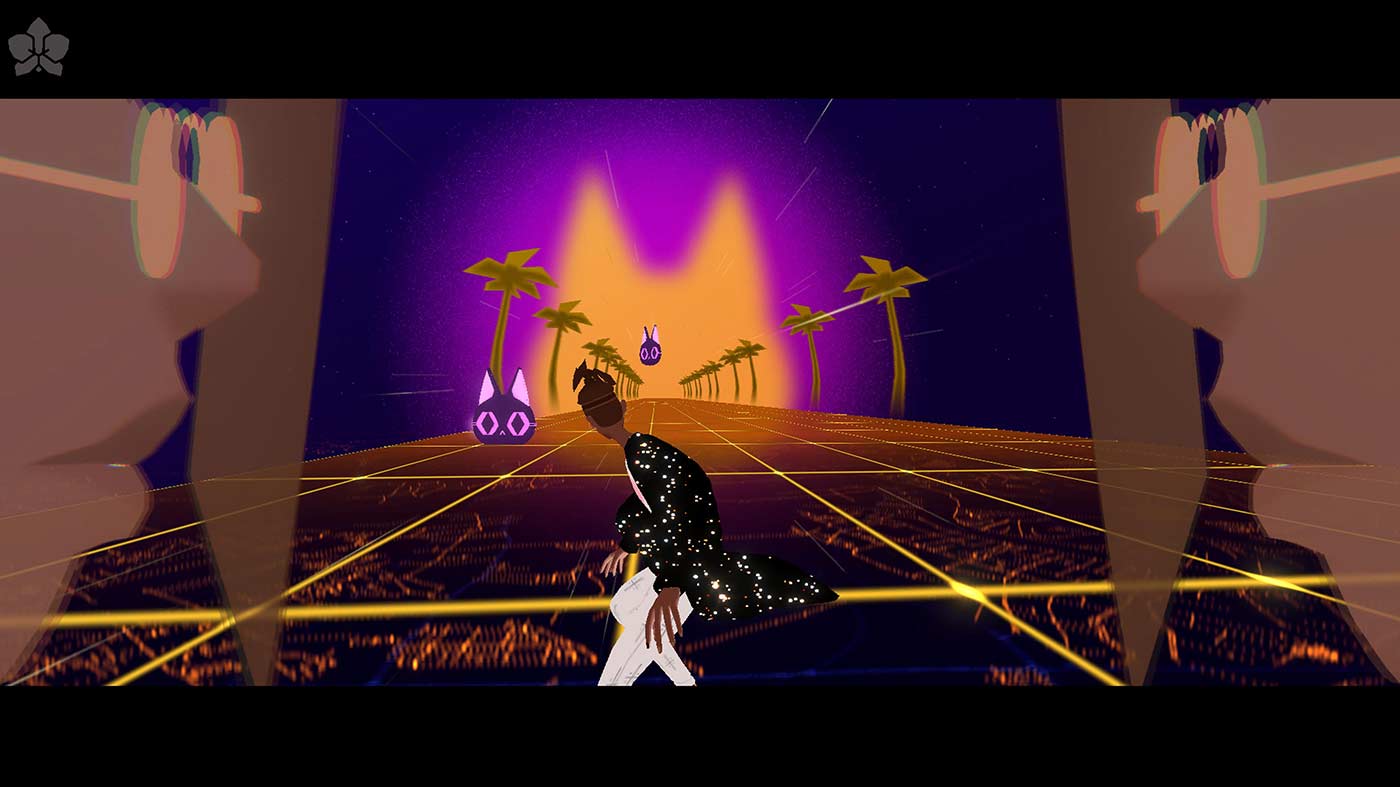
I’ve no business trying to define how much or how little direct engagement a video game should have with its players, especially in something that is billed front-and-centre as an “interactive EP” before it’s a game, but I couldn’t shake the feeling during my time with it that I’d have much preferred the option to simply watch it play out. It feels as though the interactive aspects don’t add enough to the overall experience to justify its method of delivery. It’s exactly the kind of gorgeous, contemplative slice-of-life story and audiovisual aesthetic that I’d love to lay back and zone out to, but I can’t, because I have to make sure I’m ready to press X whenever Itsumi gets a text message.
There are some more “game-y” bits, to be fair. A couple of neat interactive portions that riff heavily on classic text adventures and JRPGs are a particular highlight, and then there are the music videos for OFK’s five-track EP that feature across each episode. These playable sequences don’t really ask a lot and feel more like digital toys than any sort of gameplay challenge, but that idea fits nicely with the overall vibe of the game and makes the best case for We Are OFK’s blending of mediums. Interactive music videos are a neat idea in general, as is launching a virtual band through a tactile platform, even if this particular go of it feels at odds with the environment it’s positioned in. It feels simultaneously bigger and smaller than the home video game console ecosystem, especially as a musical project that could genuinely stand on its own.
